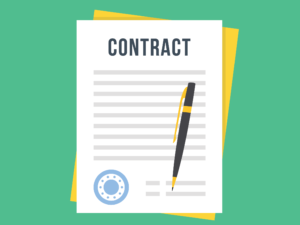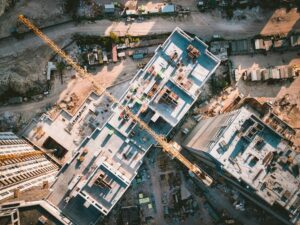What Makes For a Good Concrete Mix?

Concrete is essentially water, cement, and aggregate, all combined together into one seamless mixture.
With the right proportions of all three materials, concrete has the ability to withstand the test of time, remaining dense and strong enough to handle extreme pressure, without cracking, splitting, or sliding.
That said, there is an art form to creating the perfect batch of concrete for your real estate needs. And, while there is information out there about how to mix your own concrete for DIY projects, sometimes it is best to rely on the professionals to help you along the way.
In fact, according to this Houston cement supplier, relying on professionals that have multiple locations for making quick and reliable cement deliveries as needed, and thus allowing for custom mix creation and mixtures that are thoroughly combined, guarantees your finished project will be sturdy.
Today we are going to look at what makes for an exceptional concrete mix, so that you know what to look for when you enlist the help of a concrete company for your next big project.
1. Workability
The amount of workability your concrete mixture has is important when it comes to the actual mixing process, transportation to the job site, molding ability, and ability to compact into its final state.
Concrete is said to be “workable” if it can be manipulated without segregation of its separate parts.
Several things must be considered when it comes to the amount of workability a concrete mix has:
- The type of construction work being performed
- The mixing method
- How thick the concrete section will be
- Reinforcement needs
- Mode of compaction
- Distance of transportation
- Method of placement
- Environmental conditions
Having a concrete that is workable enough for your project is something only the professionals can know and understand.
2. Consistency
Consistency throughout your concrete mix attributes to the amount of mobility your concrete will have during the pour and set process.
The key here is to find the perfect balance between too thick to flow, and too fluid to set correctly.
Using what is called the concrete slump test (and thus a slump cone filled with freshly poured concrete), a concrete expert will be able to identify whether the batch is good or not.
3. Strength
You will want your real estate concrete mix to be as strong as possible. As the most commonly known attribute of concrete mixes, and probably the most important, it is crucial you employ professionals that understand how to properly test the strength of a concrete batch.
In addition, your concrete experts should know the mix’s water-to-cement ratio, which directly relates to its overall strength (after it has been poured and set for 28 days).
4. Durability
Your real estate concrete needs will require the ability withstand inclement weather. For instance, extreme heat, rain, snowy winters complete with frost, and humidity can all damage a concrete mixture that is not mixed properly.
Your concrete should be able to handle all types of weather without cracking or crumbling, even after a long period of time.
5. Density
When mixing concrete, you can make it either very dense or not that dense at all, depending on what the concrete is being used for.
For projects such as bridges, roofs, and flooring, a very dense, and consequently strongly compressed, mix of concrete is used. This compressed concrete is the strongest there is.
On the other hand, concrete with air introduced is more lightweight and is ideal for roads and airport runways, thanks to their ability to withstand the harsh weather.
As you can see, there is a lot more that goes into a good concrete mix, besides the raw materials used to form the mixture. It is important you employ a concrete expert that can evaluate your project needs and mix the perfect batch so that your concrete lasts forever while still looking good.






